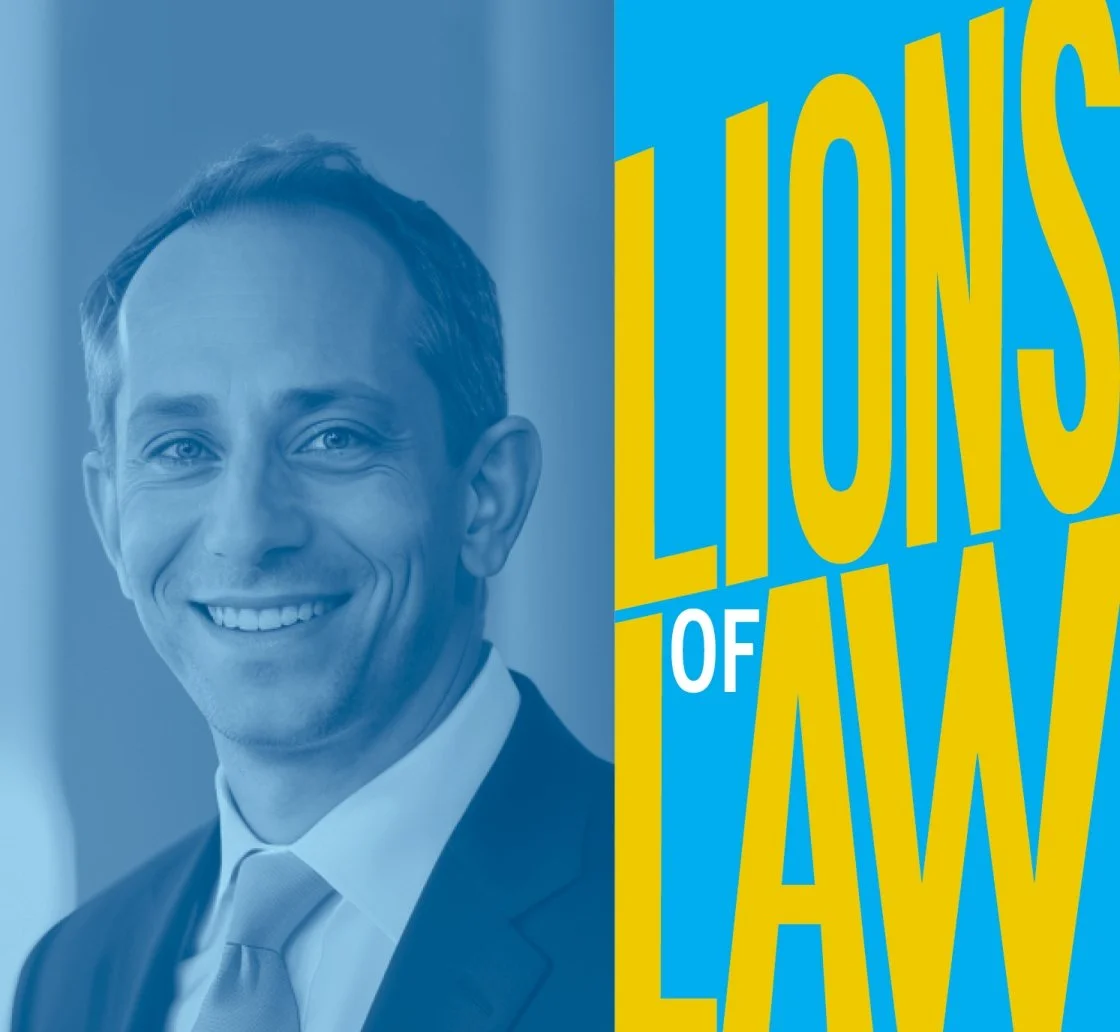Federal Trade Commission: Industry Focuses
FTC White Collar Focus: Telemarketing and Robocall Enforcement
The telemarketing industry has long been one of the FTC’s primary focus areas. The FTC, often in conjunction with the FCC and DOJ, has aggressively pursued companies and individuals responsible for illegal telemarketing calls, robocalls, and related scams—leading to enforcement actions where white-collar defense attorneys and trial lawyers are frequently called on to represent clients facing allegations of white-collar crime and regulatory fraud. We will discuss the Telemarketing Sales Rule (TSR) – a key regulation that telemarketers must follow – which, among other things, prohibits deceptive telemarketing acts or practices, requires certain disclosures in calls, and enforces the National Do Not Call Registry. The TSR carries civil penalties, and the FTC has brought over 150 enforcement actions to date against telemarketers and sellers for Do Not Call and robocall violations. The FTC targets a variety of common types of telemarketing schemes: for example, prize promotion scams, debt relief and credit repair telemarketing that charge fees up-front, charity fraud calls, and extended car warranty robocalls. The FTC typically seeks several remedial measures in these cases– the FTC not only seeks to shut down the operations and obtain monetary judgments, but often seeks permanent bans preventing defendants from telemarketing in the future.
A notable trend in telemarketing enforcement is the FTC’s effort to trace and cut off the infrastructure that supports robocalls. Recent cases have expanded to include actions against Voice over Internet Protocol (VoIP) service providers and others who facilitate illegal robocalls. The FTC and DOJ have sued VoIP gateway companies that bring in overseas scam calls, and lead generation companies that illicitly gather consumer phone numbers and consent for unwanted calls. In terms of legal strategy, the FTC uses both Section 13(b) (for immediate injunctions and asset freezes against fraudulent telemarketers) and Section 5(m)(1)(A) (for civil penalties for knowing TSR violations) in these cases. Some examples of significant telemarketing cases in recent years include the massive robocall operations being halted, and nationwide sweeps like “Operation Call it Quits” where the FTC and state partners jointly announced dozens of actions. We can offer some practical compliance pointers for legitimate telemarketing businesses: e.g., scrub call lists against the Do Not Call list, avoid misrepresentations and unauthorized billing, and maintain proper records (the TSR now requires telemarketers to keep records for at least 5 years under recent amendments). By examining the telemarketing enforcement arena, it becomes apparent how the FTC’s civil enforcement can completely dismantle fraudulent calling operations and how industries rife with consumer abuse (like robocalls) remain a top priority for the agency.
FTC White Collar Focus: Digital Advertising and Online Marketing
This section explores FTC enforcement in digital advertising, marketing, and e-commerce – a broad area that has seen intense FTC scrutiny as commerce has moved online. The FTC’s activity here spans everything from policing false online advertisements and deceptive websites to enforcing guidelines for social media influencers. One key aspect is the FTC’s enforcement of truth-in-advertising principles on the internet: the same laws against deception apply to online ads, paid endorsements, and promotional content. The FTC targets misleading online sales tactics such as “free” trial offers that aren’t really free (violations of ROSCA, the Restore Online Shoppers’ Confidence Act), hidden fees in online transactions, and dark patterns that trick users into subscriptions or sharing data. The FTC has recently cracked down on fake reviews and misleading endorsements (for example, actions against companies for posting fabricated customer reviews or for influencers failing to disclose sponsorship). The agency has made it clear that it is enforcing standards in digital advertising just as strictly as traditional media, and has updated guidelines (like the Endorsement Guides) to address social media and influencer marketing.
Notable cases include those involving large online platforms and smaller digital marketers: e.g., the FTC’s action against social media influencers who deceptively promoted products, cases against ad tech companies that misused consumer data (like sharing location data improperly in the course of targeted advertising), and enforcement against deceptive earnings claims made online (e.g., scams promising income through e-commerce or crypto). Another focus of the FTC is mobile and app-based advertising – the FTC has brought actions for deceptive practices in mobile game marketing, in-app purchase disclosures (like cases where kids incurred charges due to unclear setups), and has scrutinized app stores for their billing practices. The FTC’s authority also intersects with technology: for example, enforcing COPPA (Children’s Online Privacy Protection Act) when online services aimed at kids engage in marketing or data collection without parental consent, or using the FTC’s broader Section 5 to challenge new forms of digital deception (like manipulative user interface designs).
From a compliance standpoint, white-collar defense attorneys often advise digital clients to follow FTC guidance—clear disclosures, honest advertising, and substantiated claims—especially when enforcement action for deceptive online practices is a growing risk. We will note that the FTC’s enforcement in digital advertising often results in large settlements — including multi-million-dollar judgments and requirements to delete ill-gotten data or algorithms derived from it (a newer form of relief in some cases). Being knowledgeable of the FTC’s priorities and their broad definition of “advertising” is crucial for businesses operating online and the attorneys advising them, as the FTC continues to make online consumer protection a core part of its mission.
FTC White Collar Focus: Health and Wellness Products
The FTC has a long history of policing advertising and marketing in the health and wellness sector, which remains a critical enforcement priority. This section discusses FTC civil enforcement related to health products, dietary supplements, and treatments. The FTC’s main concern in this arena is deceptive health claims – situations where a company promises a health benefit that is unproven or flat-out false. The FTC typically operates under its substantiation doctrine: generally, claims that a product can treat, cure, prevent, or mitigate a health condition (from weight loss to disease cure) require competent and reliable scientific evidence. If a company lacks adequate scientific proof for its claims, the FTC may deem those claims deceptive under Section 5. The FTC typically targets deceptive practices such: weight loss supplements that claim users can “lose 30 pounds in 30 days without diet or exercise,” cognitive enhancement or memory pills, cancer or COVID-19 cures sold without FDA approval or proof, and various wellness gadgets making unfounded health promises.
White collar defense counsel saw a surge in FTC enforcement during the COVID-19 pandemic, as the agency—working alongside the FDA—targeted false treatment claims and launched regulatory crackdowns requiring experienced law firms to represent clients in fast-moving litigation. Health-related schemes can cause serious consumer harm (financially and physically), so the FTC often seeks strong remedies including broad bans on future health product marketing and restitution for consumers. Some of the most notable FTC cases include instances where large supplement marketers settled FTC charges by paying millions and agreeing not to make certain claims without rigorous scientific backing, or cases where companies selling vitamins or herbal remedies were shut down for fraudulent practices.
The FTC might also allege violations of specific rules (for example, the FTC’s Health Breach Notification Rule if a health app shares personal health data, though that’s more about privacy) or use authority under the COVID-19 Consumer Protection Act (a recent law that specifically authorized penalties for COVID-related deception). For defense and compliance, substantiation is key – companies should have clinical studies or competent evidence before making strong efficacy claims. We’ll note that terms like “scientifically proven” or “doctor recommended” are red flags if not true. FTC orders in health product cases often require the companies to have future claims pre-approved or supported by specific levels of scientific evidence (sometimes even FDA approval for any disease-related claims).
FTC White Collar Focus: Consumer Finance and Credit Practices
This section covers the FTC’s civil enforcement work in consumer financial services, an area that includes credit, lending, and debt-related products where the FTC shares jurisdiction with the Consumer Financial Protection Bureau (CFPB) and other agencies. The FTC’s focus here is on protecting consumers from unfair or deceptive practices in financial matters, especially in areas not directly overseen by the CFPB (for instance, the FTC has authority over many non-bank entities like payday lenders, auto finance companies, credit repair outfits, and debt collection agencies). Credit repair and debt relief scams are among the most common enforcement targets in this industry. The FTC has brought numerous cases against companies that promise to clean up consumers’ credit reports or negotiate debt forgiveness, but charge large upfront fees (often illegal under the TSR and Telemarketing Sales Rule when telemarketed) and fail to deliver results. Student loan debt relief and mortgage foreclosure rescue schemes have also been in the FTC’s crosshairs, particularly following the 2008 financial crisis and more recently during economic hardships – the FTC teamed up with state AGs to tackle many of these.
Another major focus is payday lending and auto-title lending: the FTC has sued payday loan businesses for misleading terms and unlawful debt collection tactics. Notably, the AMG Capital case that went to the Supreme Court (the 2021 decision on 13(b) authority) originated from an FTC action against a payday lending enterprise that was deceiving consumers with hidden terms. The FTC has also enforced against debt collectors who use harassing or deceptive methods (tying into the Fair Debt Collection Practices Act, which the FTC can enforce alongside the CFPB). It’s important to highlight that the FTC often coordinates with the CFPB via a memorandum of understanding, and both agencies sometimes do joint enforcement (the CFPB focusing more on banks and certain non-banks, the FTC on others). Some examples include the FTC’s crackdown on abusive auto financing practices (yo-yo financing scams at dealerships, etc.) and illegal billing or lending practices by fintech companies.
From a procedural standpoint, FTC cases in the financial realm often involve both injunctive relief and monetary redress. The FTC might use Section 5 and Section 13(b) to bring the case (if deception is involved) and also invoke specific regulations: for instance, telemarketed debt relief services are covered by the TSR’s advance fee ban, allowing the FTC to seek civil penalties for violations (since “debt relief and unlawful telemarketing operations” are frequently tackled together). In consumer finance enforcement, white collar crime investigations often culminate in massive restitution orders—sometimes totaling tens of millions—prompting criminal defense teams to respond quickly to protect companies and individuals from reputational and financial fallout.
For lawyers and companies, there are a few key takeaways: ensure advertising of financial products (credit terms, debt relief promises, etc.) is clear and compliant with Truth in Lending and other laws; do not charge upfront for credit repair or loan mods if not allowed; and maintain proper licensing and bonds where required. The FTC tends to prioritize financial scams that affect vulnerable populations (like military families or consumers with poor credit), aligning with its mission to protect those most at risk. In summary, the FTC’s enforcement in consumer finance is about keeping financial markets fair and truthful.
FTC White Collar Focus: Tech Platforms and Online Services
In recent years, some of the most high-profile FTC enforcement actions have involved technology platforms and online services. A central theme here is privacy and data security. The FTC has positioned itself as a key regulator of privacy in the absence of a broad federal privacy law, using its Section 5 authority to police companies that mislead users about data practices or fail to safeguard personal information. For example, the FTC’s settlements with giants like Facebook (2019, $5 billion penalty for privacy violations) and Google/YouTube (2019, $170 million for COPPA violations) grabbed headlines and signaled that even the biggest tech firms must comply with consumer protection laws. These cases typically arise from a company violating a prior privacy promise (which becomes a deceptive practice) or violating specific rules like COPPA (which protects children’s online data). The FTC is also charged with enforcement concerning data security, and can take actions against companies for data breaches or inadequate security (the FTC often requires 20-year security compliance orders to fix lax practices).
Another major focus is how tech platforms design their services – the FTC has scrutinized UI/UX designs that may mislead users (so-called “dark patterns”). For instance, the FTC recently alleged that Amazon engaged in unfair or deceptive practices in how it enrolled consumers into Prime and made cancellation difficult (case filed in 2023), showcasing the agency’s interest in the interface and consent aspects of digital services. Similarly, the FTC has looked at social media and app defaults and disclosures (like whether users truly understand what they’re sharing). The agency’s attention to tech also includes emerging technologies: there’s an increasing focus on artificial intelligence tools and algorithms. The FTC has warned businesses about misrepresenting AI capabilities or outcomes (deceptive AI marketing claims) and has brought at least one case against a company for using AI to create fake reviews. We’ll mention the FTC’s broader initiative on “commercial surveillance,” as the agency has called it, which could lead to new trade regulation rules that would expand requirements around data use and transparency.
In terms of remedies, FTC orders in the tech sector often have unique provisions: e.g., requiring a company to delete data that was collected improperly or to reform their algorithms (as seen in some recent settlements involving misuse of consumer data). We will also note the involvement of federal courts vs administrative processes – the FTC has tended to take big tech cases to court (often resulting in stipulated orders), but it also has pending administrative complaints against some tech companies on competition. The FTC’s tech platform enforcement illustrates the blend of privacy, consumer protection, and even competition concerns (like requiring interoperability or limits on certain conduct as part of settlements).
For companies in the tech space, the lessons we’ll summarize are: be transparent with users, keep your promises (if you say “we don’t sell data,” you must adhere to that), build privacy and security in from the start, and avoid designs that trick or trap users. With the FTC’s current leadership expressing particular concern about big tech and its influence, we can expect continued aggressive oversight. Ongoing developments include the FTC’s advanced of proposed rulemaking on data practices (which could dramatically change the enforcement landscape if new rules are enacted) and the importance of monitoring agency guidance like the FTC’s business blog posts that often foreshadow enforcement themes. In essence, this section underscores that tech platforms, despite innovative business models, are subject to the same consumer protection principles – and often face even greater FTC scrutiny due to their broad impact on consumers’ lives.
Contact Dynamis LLP today to learn how we can help you navigate the complexities of Federal Trade Commission investigations and “prosecutions.” If you are an organization or individual facing a situation requiring an aggressive, robust response to a Federal Trade Commission inquiryor even an active case, contact attorneys at Dynamis LLP or email whitecollar@dynamisllp.com today.
Further Resources on White-Collar Criminal Defense
-
Money laundering is the process of disguising illegally obtained funds to make them appear legitimate, often through complex financial transactions across multiple jurisdictions. It is a federal crime frequently prosecuted under laws like the Bank Secrecy Act and Anti-Money Laundering statutes.
-
Government investigations involve inquiries by agencies like the Department of Justice, SEC, or FBI into potential violations of laws, often targeting white-collar crimes, fraud, or regulatory breaches. These investigations can result in civil penalties, criminal charges, or negotiated settlements.
-
Hiring a white-collar defense attorney is crucial for individuals or businesses facing allegations of financial crimes, fraud, or regulatory violations. An experienced attorney provides strategic guidance, protects your rights during investigations, and builds a strong defense to mitigate potential penalties or resolve the case favorably.
-
Federal criminal defense involves representing individuals or entities accused of violating federal laws, such as fraud, tax evasion, or drug trafficking. Defense attorneys navigate complex federal statutes and procedural rules to protect clients' rights and achieve favorable outcomes.
-
Insider trading involves buying or selling securities based on material, non-public information in violation of trust or fiduciary duty. It is prosecuted as a serious offense under federal securities laws, often resulting in civil penalties, criminal charges, and imprisonment.
-
Securities fraud occurs when individuals or entities deceive investors by misrepresenting or omitting material facts about financial instruments. Common examples include Ponzi schemes, misleading financial disclosures, and pump-and-dump schemes, which undermine market integrity and investor trust.
-
Mail and wire fraud are federal offenses involving schemes to defraud using mail services or electronic communications, such as emails or phone calls. These charges are broadly applied in white-collar crime cases, often carrying severe penalties due to their wide-reaching impact.
-
Crypto regulatory enforcement involves actions by agencies like the SEC and CFTC to address fraud, unregistered securities offerings, and market manipulation in the cryptocurrency industry. With increased scrutiny, companies and individuals in the crypto space face complex compliance requirements and significant penalties for violations.
-
White-collar defense involves representing individuals and businesses accused of financial crimes such as fraud, embezzlement, or money laundering. New York City prosecutors have long been at the forefront of prosecuting white-collar cases nationwide.
-
White-collar defense in Boston involves navigating complex legal issues related to financial crimes, regulatory violations, and corporate misconduct. With a strong business environment, cases often involve fraud, embezzlement, insider trading, and money laundering. Defending clients requires a deep understanding of criminal law and regulatory frameworks. Skilled attorneys analyze evidence, develop robust defense strategies, and advocate for clients' rights, mitigating serious charges. As Boston grows as a hub for finance and innovation, the demand for sophisticated and aggressive white-collar defense continues to be crucial.
-
Health care fraud includes schemes to defraud government programs, insurers, or patients through false billing, kickbacks, or unnecessary medical services. It is aggressively prosecuted under statutes like the False Claims Act, often resulting in significant fines, criminal charges, and exclusion from federal programs.
-
White-collar crime enforcement has increasingly focused on emerging areas like crypto fraud, pump and dump schemes, securities fraud and cybersecurity breaches. Regulatory agencies are leveraging advanced data analytics and global cooperation to target sophisticated financial crimes and corporate misconduct.
-
An effective white-collar defense strategy starts with a thorough investigation of the facts, understanding the applicable laws, and assessing potential weaknesses in the prosecution’s case. Collaboration with experts, proactive communication with regulators, and pursuing favorable resolutions, such as settlements, are key components of a robust defense.
-
Corporate compliance programs are internal policies and procedures designed to ensure adherence to laws, regulations, and ethical standards. Effective programs not only reduce the risk of violations but can also serve as mitigating factors in enforcement actions if issues arise.
-
Understanding how state and federal investigations work, as well as their differences, is critical. The federal criminal process involves investigation and prosecution under federal laws by agencies like the FBI or DOJ, with cases heard in federal courts. State processes deal with violations of state laws and are typically less complex, though penalties and procedures vary significantly between jurisdictions.
-
Responding to a subpoena requires careful compliance with the legal request for documents, testimony, or evidence while protecting privileged or confidential information. Consulting an attorney is crucial to navigate the process and avoid legal risks associated with non-compliance or over-disclosure.
-
The federal grand jury process is used to determine whether sufficient evidence exists to indict a person for a federal crime. It involves secret proceedings where prosecutors present evidence, and the grand jury votes on whether to issue an indictment.
-
Internal investigations are conducted to uncover potential wrongdoing within an organization, often triggered by whistleblower reports or regulatory inquiries. These investigations are essential for assessing legal risks, taking corrective action, and demonstrating corporate accountability to regulators.







